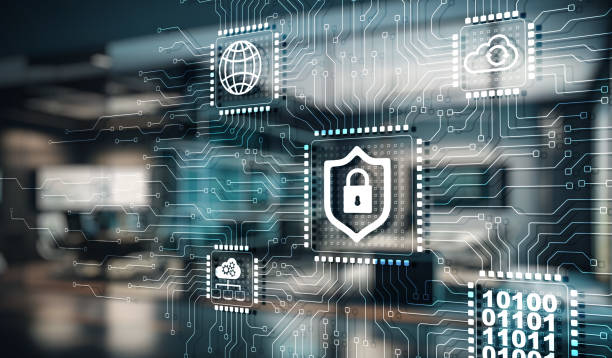Blockchain and Cybersecurity: Strengthening Digital Defence
In an increasingly interconnected world, the need for robust cybersecurity measures has become paramount. Traditional centralized systems have proven vulnerable to data breaches, identity theft, and fraud. However, blockchain technology offers a promising solution by leveraging its inherent properties of immutability, decentralization, and secure data sharing.
This article delves into the potential of blockchain in enhancing cybersecurity. It explores how blockchain can combat data breaches, protect against identity theft, and mitigate fraud, highlighting the transformative impact it can have on the digital landscape.
Blockchain and Immutable Records
One of the fundamental strengths of blockchain technology lies in its ability to provide immutable records. In a blockchain, all transactions are recorded in a decentralized and distributed ledger, making it virtually impossible to alter or tamper with the data. This immutability ensures that once information is recorded on the blockchain, it remains securely preserved, making it highly resistant to unauthorized modifications or deletions.
By employing blockchain for record-keeping, organizations can enhance cybersecurity by ensuring the integrity and authenticity of their data. For example, in supply chain management, blockchain can enable transparent tracking of goods, ensuring that products are not compromised or counterfeited during transit. Similarly, in financial transactions, blockchain can provide an immutable and auditable record of transactions, mitigating the risk of fraud.
Decentralized Authentication
Traditional authentication systems often rely on centralized databases that store sensitive user information, making them attractive targets for hackers. In contrast, blockchain introduces decentralized authentication mechanisms that enhance cybersecurity by minimizing single points of failure.
Blockchain-based authentication systems use cryptographic protocols to verify the identity of users without the need for a central authority. Each user possesses a unique cryptographic key, and transactions are validated through consensus algorithms. This decentralized approach eliminates the need for storing sensitive user data in a central repository, reducing the risk of data breaches.
Furthermore, blockchain-based authentication can enhance security by providing users with more control over their personal information. With blockchain, users can grant access to specific data on a need-to-know basis, eliminating unnecessary exposure of personal information and reducing the risk of identity theft.
Secure Data Sharing
Data sharing is an integral part of modern business operations, but it also poses significant cybersecurity challenges. Traditional methods of data sharing often involve centralized platforms that act as intermediaries, increasing the risk of data breaches and unauthorized access.
Blockchain technology offers a secure and decentralized alternative for data sharing. With blockchain, data can be encrypted, divided into smaller pieces, and distributed across the network. This ensures that no single entity has complete control over the data, reducing the risk of unauthorized access.
Smart contracts, self-executing agreements built on blockchain, further enhance secure data sharing. Smart contracts can enforce predefined rules and conditions for accessing and sharing data. They enable secure and automated transactions between parties, eliminating the need for intermediaries and reducing the risk of fraudulent activities.
Combating Data Breaches, Identity Theft, and Fraud (200 words)
By leveraging its immutability, decentralized authentication, and secure data sharing capabilities, blockchain technology has the potential to combat data breaches, identity theft, and fraud.
In the case of data breaches, blockchain's immutable nature ensures that once data is recorded, it cannot be altered retroactively. This makes it extremely difficult for hackers to manipulate or delete sensitive information, providing an added layer of protection.
Regarding identity theft, blockchain-based authentication systems minimize the reliance on centralized databases that store personal information. This reduces the attractiveness of centralized repositories as targets for hackers seeking to steal valuable personal data.
Moreover, blockchain's secure data sharing mechanisms reduce the risk of fraudulent activities. With transparent and auditable transactions, blockchain can provide a verifiable trail of activities, making it easier to identify and mitigate fraudulent behaviour.

Conclusion
Blockchain technology holds tremendous potential in enhancing cybersecurity. Its inherent features of immutable records, decentralized authentication, and secure data sharing can revolutionize how organizations protect against data breaches, identity theft, and fraud. By embracing blockchain, businesses and individuals can significantly strengthen their digital defence, fostering a more secure and trustworthy digital landscape. As blockchain continues to evolve, its impact on cybersecurity is poised to shape the future of digital interactions, helping to build a safer and more resilient digital ecosystem.




![[Honest Review] The 2026 Faucet Redlist: Why I'm Blacklisting Cointiply & Where I’m Moving My BCH](https://cdn.bulbapp.io/frontend/images/4b90c949-f023-424f-9331-42c28b565ab0/1)






























